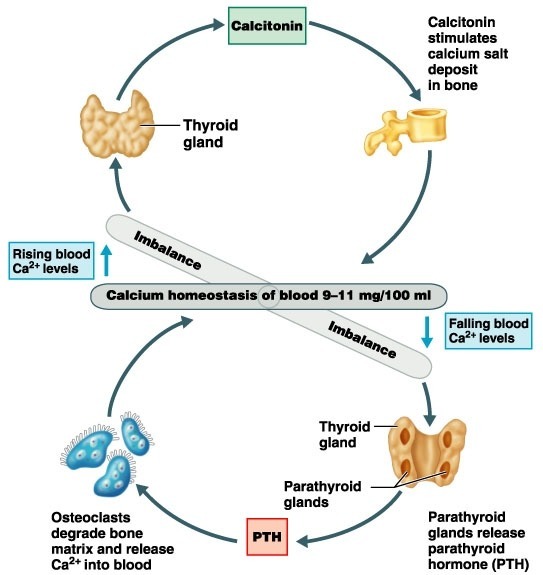
How the action of hormones maintain the level of calcium in blood
The action of hormones helps to the level of calcium in the blood by controlling the absorption, storage, and release of calcium from the bones, intestines, and kidneys. The parathyroid hormone (PTH) increases the concentration of calcium in the blood by stimulating its release from the bones and its reabsorption in the kidneys. Calcitonin, a hormone made by the thyroid gland, decreases the concentration of calcium in the blood by stimulating its uptake by the bones and inhibiting its reabsorption in the kidneys. Vitamin D, which is produced in the skin, aids in the absorption of calcium from the intestines. Thus, by controlling the absorption, storage, and release of calcium, hormones help to maintain a proper level of calcium in the blood.
- Parathyroid hormone (PTH) released from parathyroid glands
- IF PTH levels are low
- THEN Calcium ion (Ca2+) levels in blood are low
- Calcitriol (hormone form of Vitamin D) released from kidneys
- Ca2+ in the gut is absorbed and binds to calcitriol
- THEN Ca2+ levels in blood increase
- ELSE PTH levels remain high
- Calcitonin released from thyroid gland
- Calcitonin causes Ca2+ to be excreted from kidneys
- THEN Ca2+ levels in blood decrease
